 81
81[Recommended Tour Course] Day Trip to Gyodongdo Island, Where Time Stands Still
Gyodongdo Island, located northwest of Ganghwado Island. During the Korean War, it became known as the “Island of Displaced People” as refugees from Hwanghaedo settled here. Until the Gyodongdaegyo Bridge was built in 2014, the island was largely isolated from the outside world. Even today, visitors must obtain an access pass at a checkpoint to enter, which has helped preserve its scenic landscapes and the culture of its displaced communities. It’s worthwhile to explore every corner of Gyodongdo Island and take a journey back in time.
SPOT 1 Your Guide to Gyodongdo Island, Gyodong Swallow House
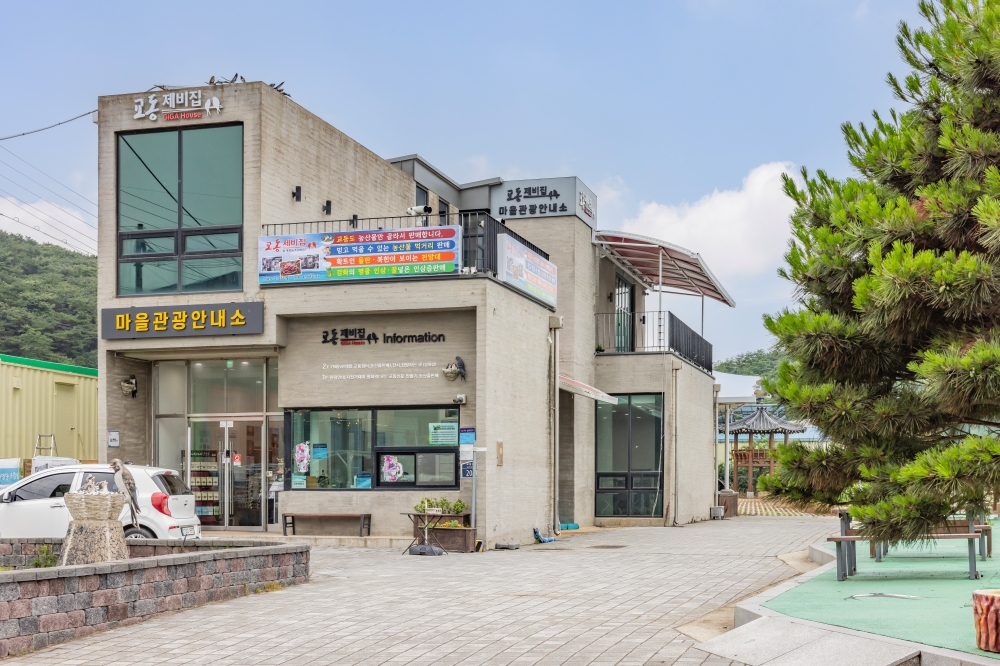
Gyodong Swallow House is a cultural complex and tourist information center operated by the residents of Ganghwa-gun. It’s an essential first stop before exploring the island, offering a glimpse into the island’s past and present. Guidebooks for both local and international visitors are also available.
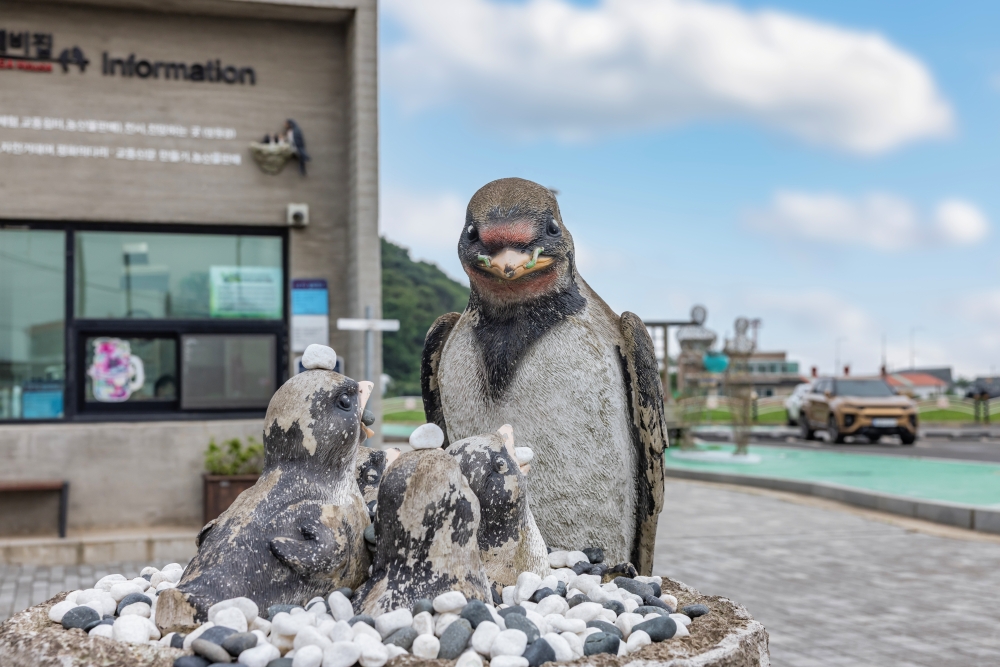
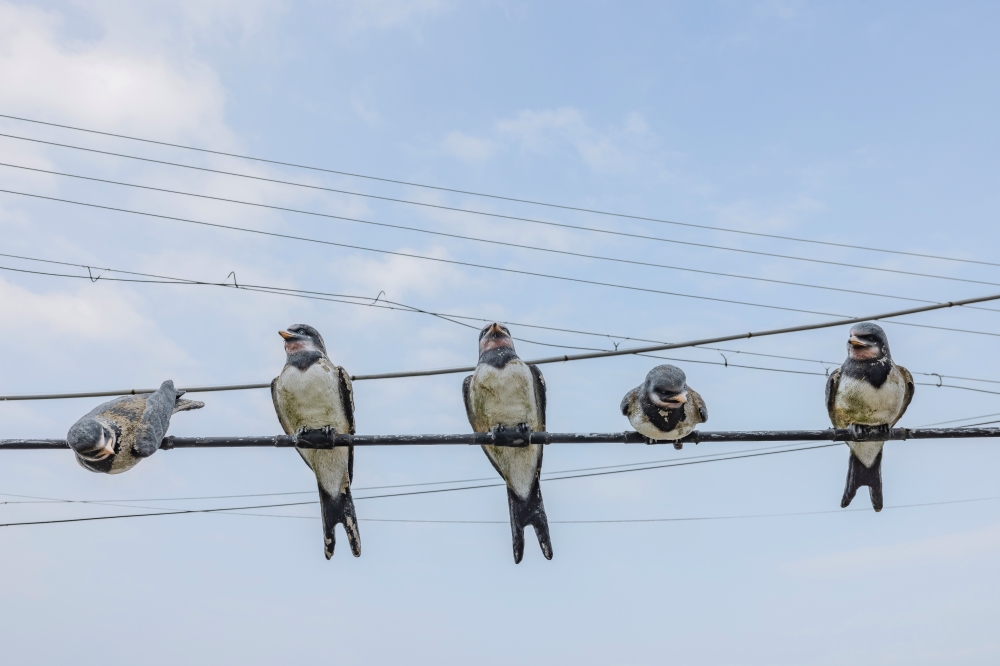
What stands out the most are the colorful swallow sculptures scattered throughout the building. There are 28 of them in all, including a large one at the entrance. The swallow, a migratory bird that freely traverses between Hwanghaedo and Gyodongdo, symbolizes the displaced people’s nostalgia and hope of returning home.
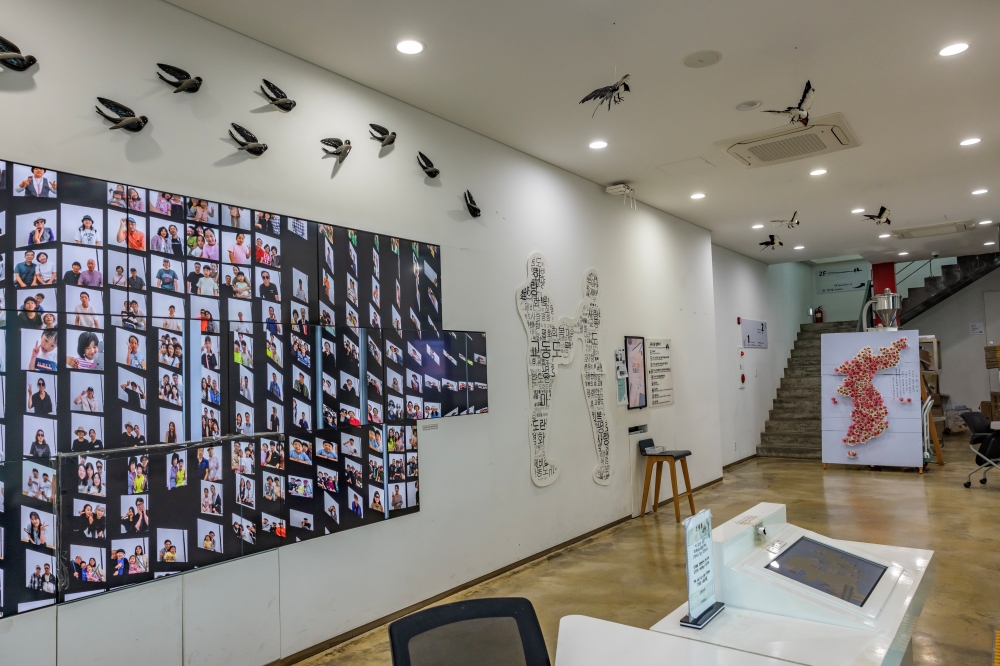
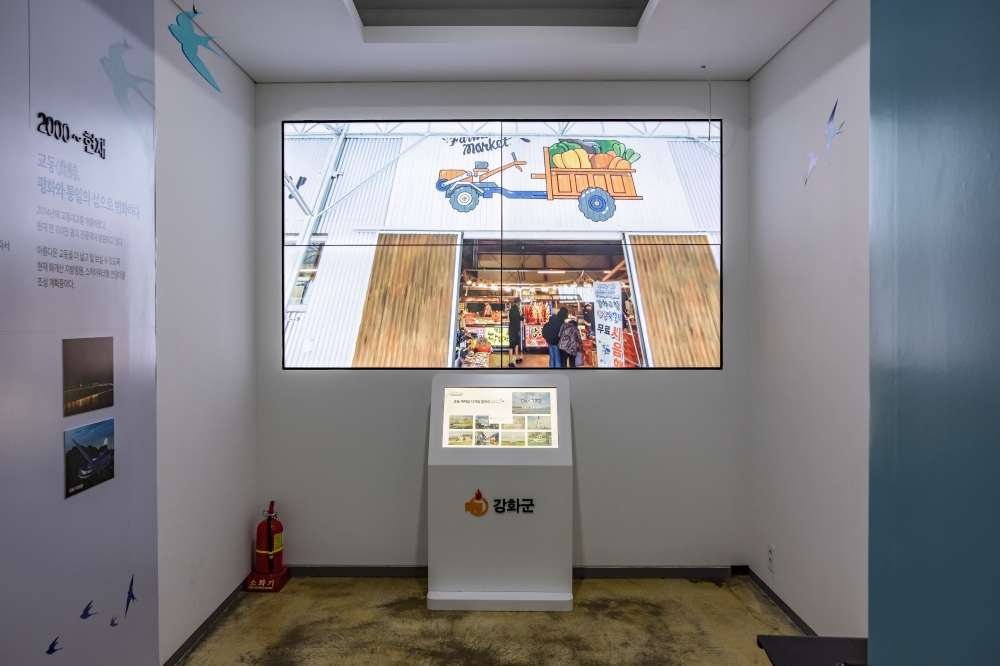
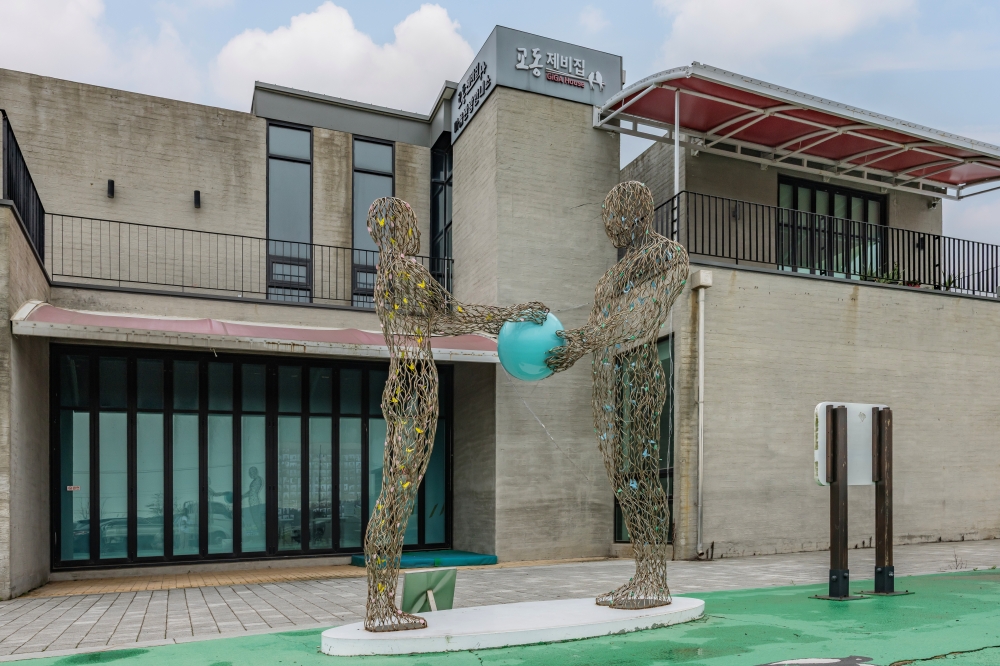
Gyodong Swallow House also offers a variety of hands-on activities, highlighted by a digital video gallery that showcases the island’s history, a “Build a Bridge of Peace” attraction where you decorate yourself, and a paid experience called “Make Your Own Gyodong Newspaper.”
- Address20-1 Gyodongnam-ro, Gyodong-myeon, Ganghwa-gun, Incheon
- Inquiries+82-32-934-1000
- Opening HoursEveryday 10:00~17:00 (Closed on the 3rd Tuesday of every month)
SPOT 2 An Alley Preserving the Flavors of the Past, Gyodongdo Daeryong Market
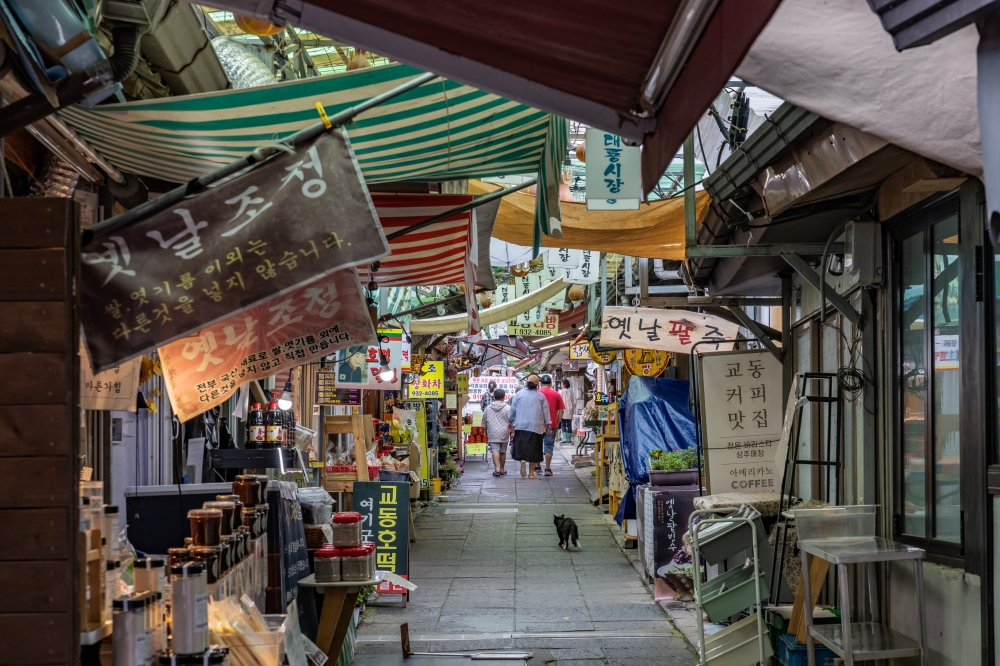
Gyodongdo Daeryong Market is one of the best places to experience the age-old atmosphere of Gyodongdo Island. Following the Korean War, displaced people who could no longer return to their hometowns set up the market, modeling it after Yeonbaek Market in Hwanghaedo. While it’s no longer a traditional market in essence, vintage movie posters and nostalgic re-creations of old scenes are displayed throughout, making it an interesting place to look around.
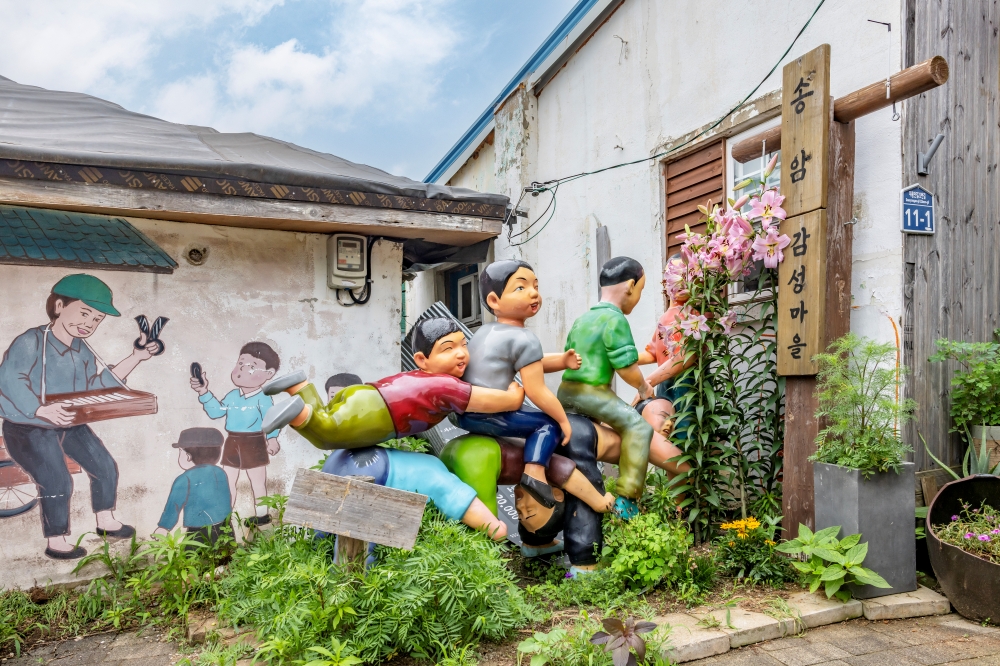
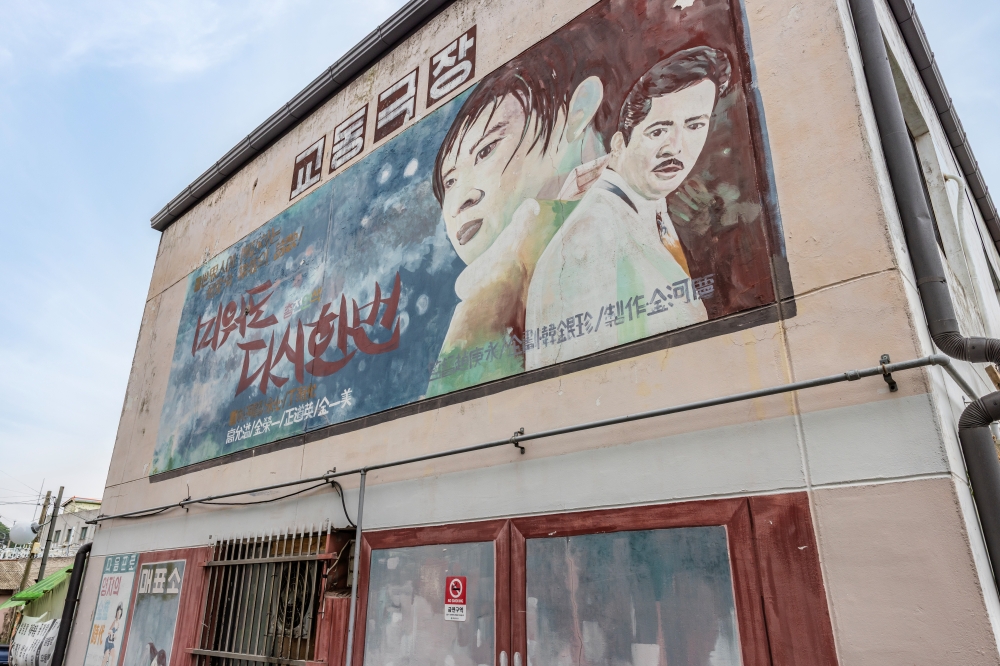
Daeryong Market is also known for its distinctive local snacks. At the eatery “Gyodong Barbershop,” you can try banquet noodles and Makgeolli bread, and “Youth Bravo” serves Yeonbaek-style Gangaji tteok (rice cake). In the middle of the market is the café “Jeil Dabang,” where you can relax with a cup of homemade Ssanghwa-cha (traditional medicinal tea). In summer, especially popular are the Bingsu (shaved ice) made with locally grown red beans and chilled Misutgaru (grain powder drink).

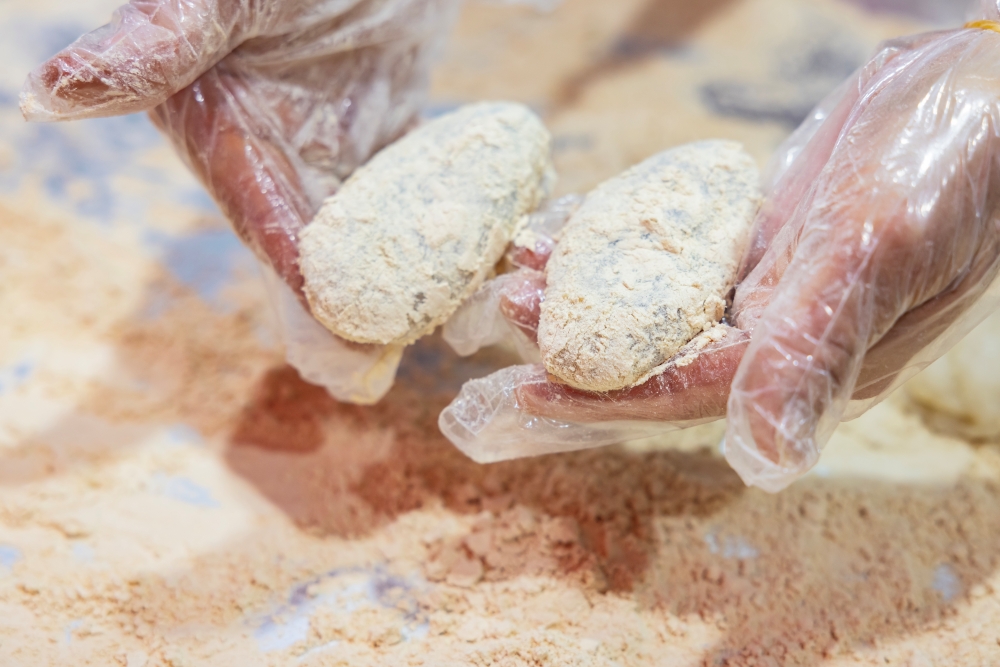
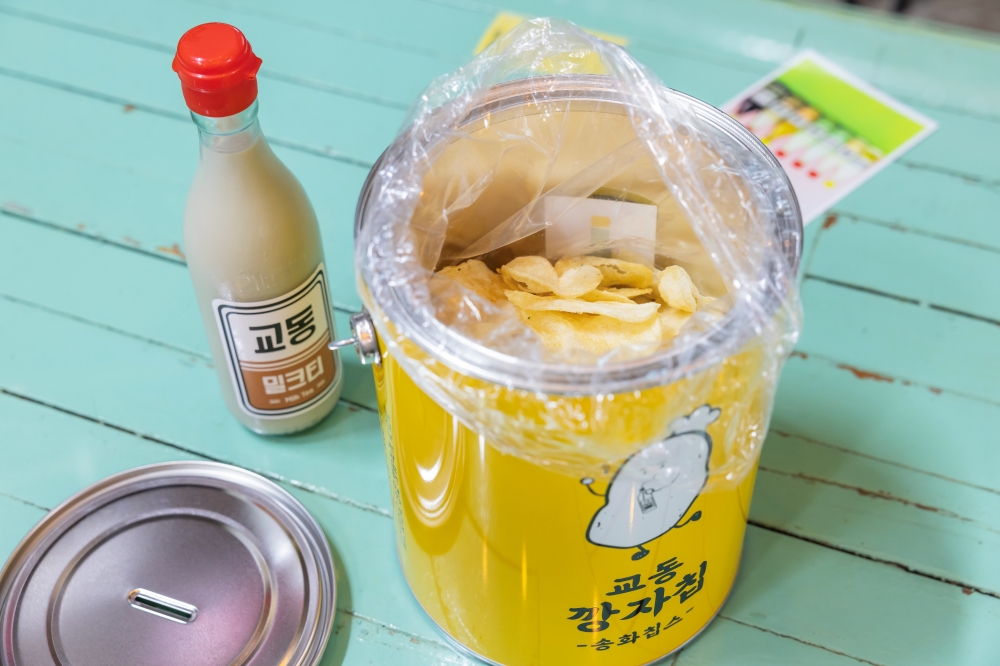
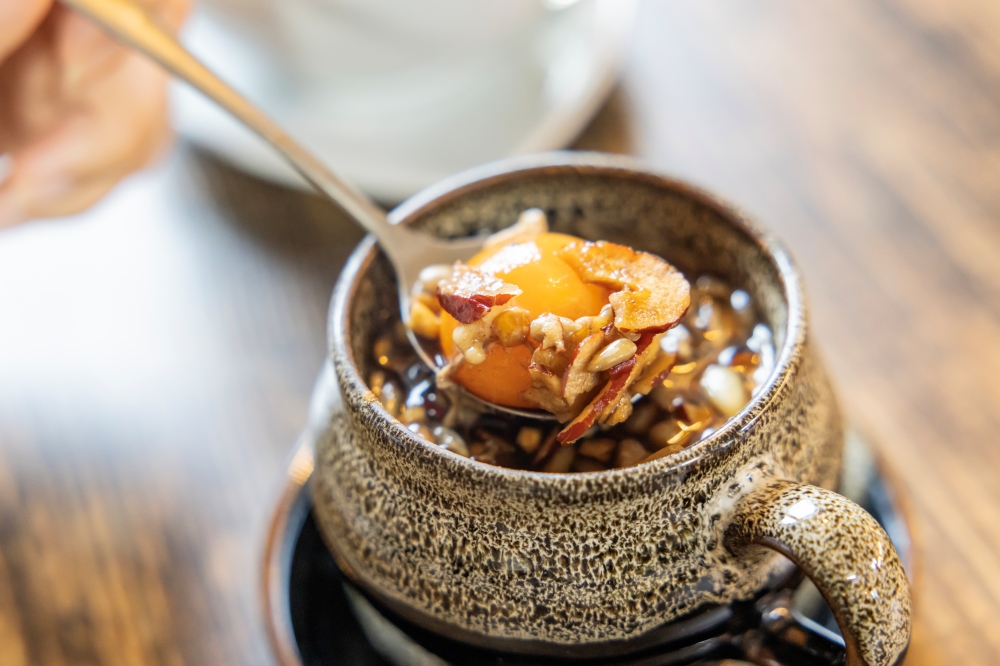
From Chapssal donut (glutinous rice donut) and Hotteok (cornmeal griddlecake) to milk tea served with sesame oil and potato chips in tin cans, the market is also full of exotic treats that appeal to the MZ generation. It’s the perfect spot for a casual and satisfying meal.
- Address462-1 Daeryong-ri, Gyodong-myeon, Ganghwa-gun, Incheon
- Inquiries+82-32-930-4500
- Opening HoursHours vary by shop
SPOT 3 A Themed Garden Tour by Monorail, Hwagae Garden
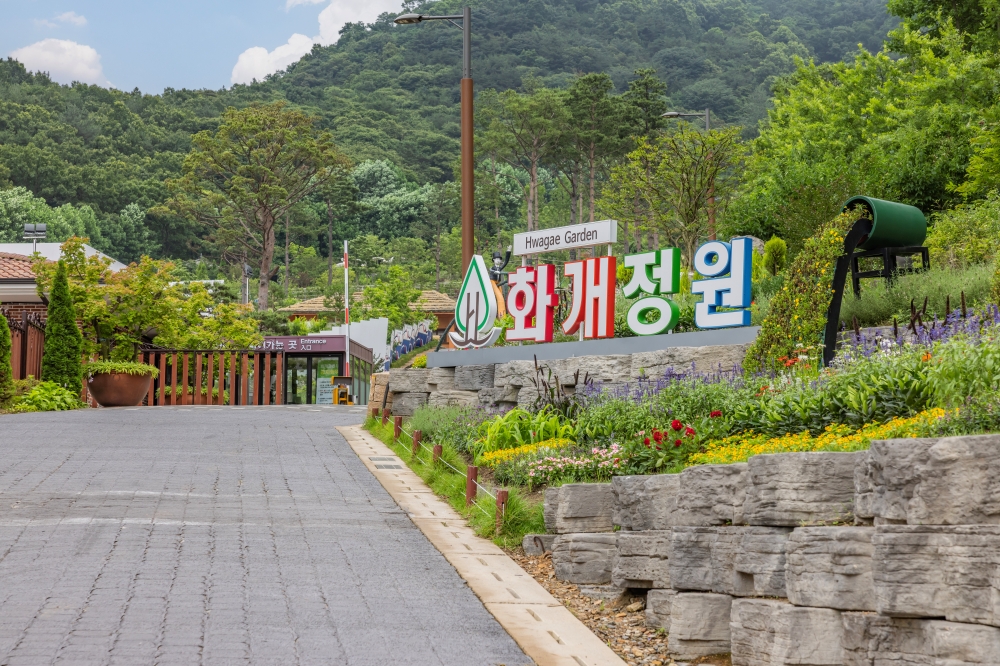
Hwagaesan Mountain was named for its shape, which resembles an overturned iron pot lid. Atop this highest mountain on Gyodongdo Island sits Hwagae Garden.
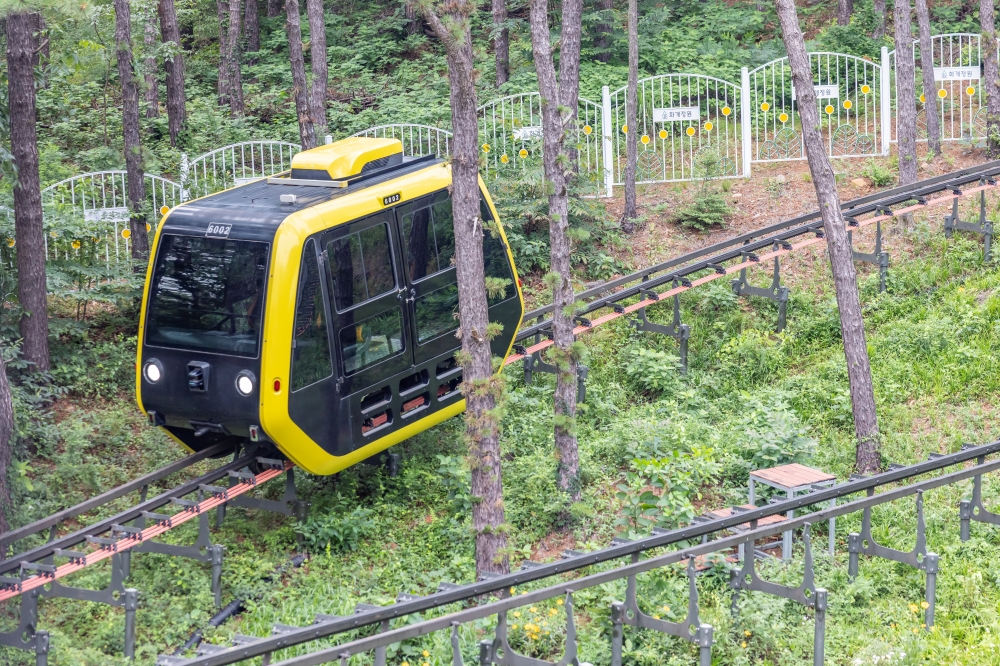
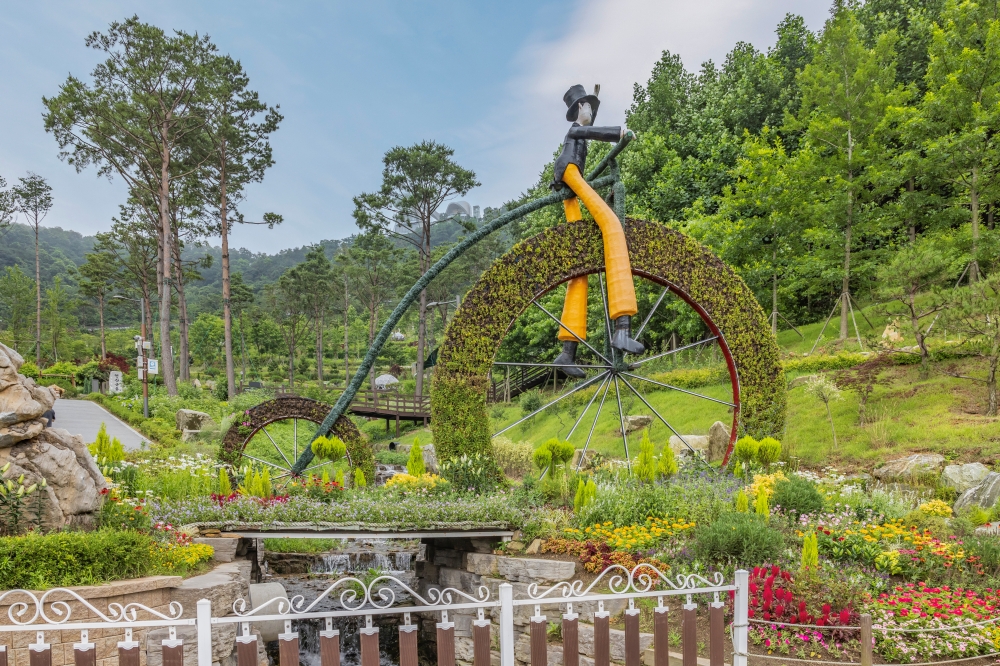
The garden was created to heal the wounds of a divided history and share a message of peace. Its five themed sections of Water, History & Culture, Memories, Peace, and Healing are also named to evoke the history and natural landscape of the island, befitting this purpose.
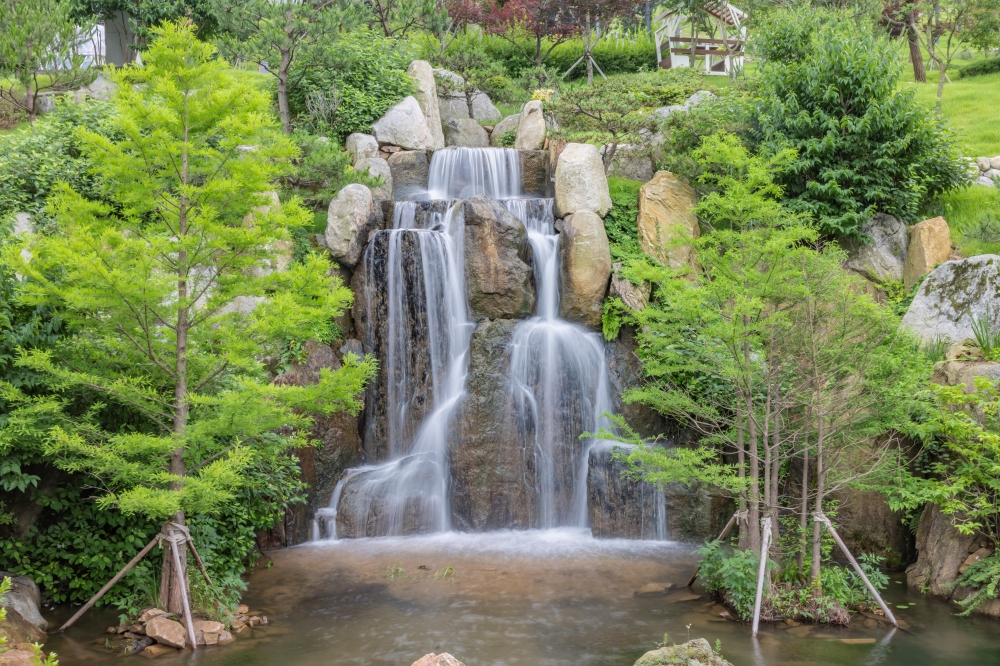
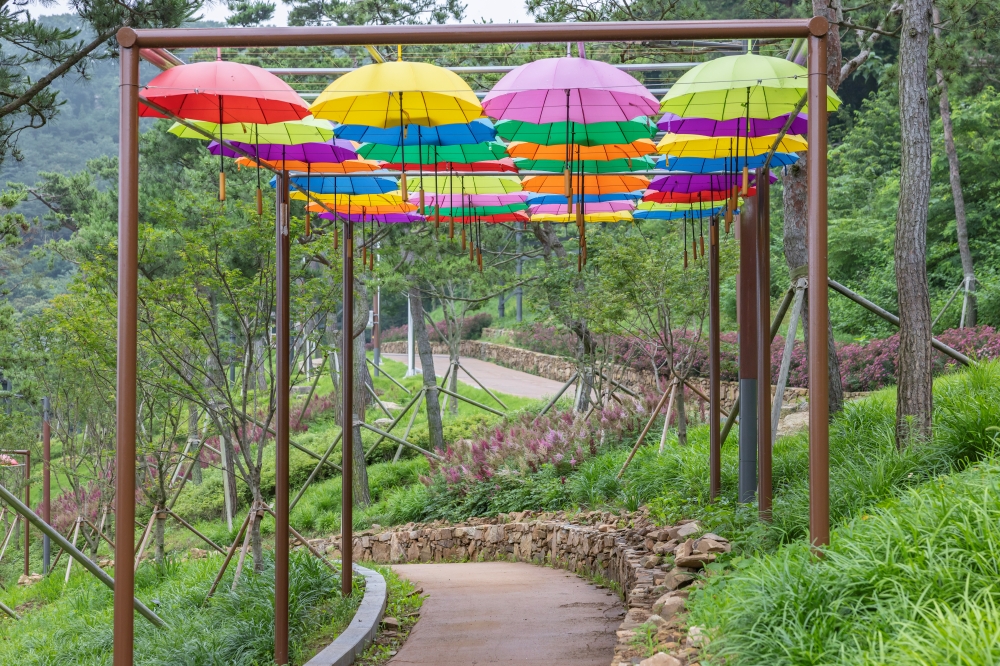
Near the ticket booth, a monorail takes visitors to the summit in roughly 20 minutes. Since walking takes around 40 minutes, it’s advised to ride it uphill to enjoy the gardens, and then walk leisurely back down.
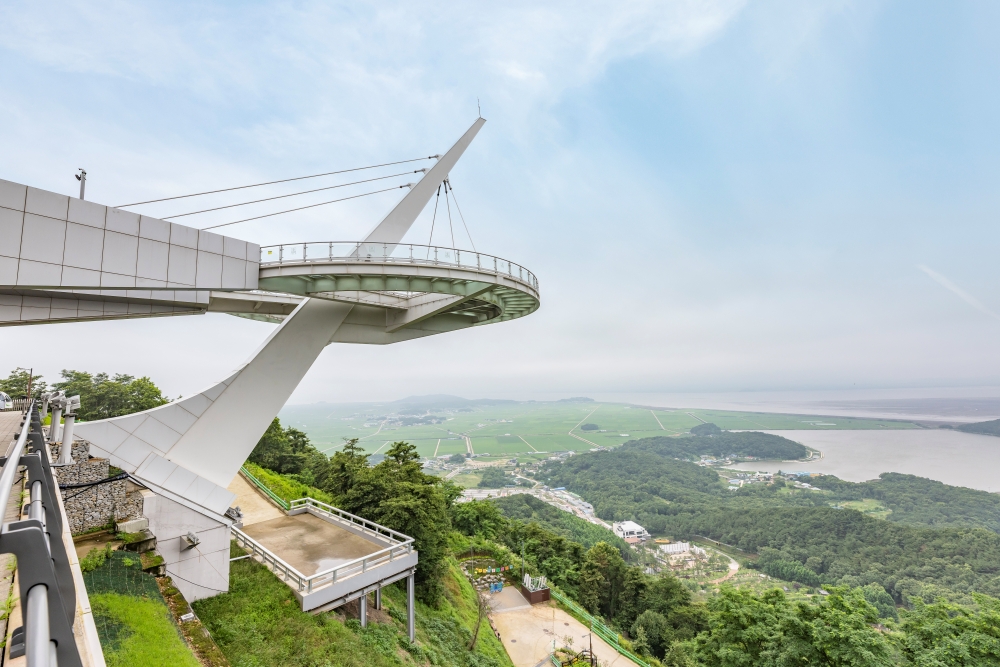
At the summit stands the Skywalk Observatory, shaped like a black-faced spoonbill, a symbol of Ganghwa-gun. Its design, with wings spread as if soaring toward the North, conveys a message of peace and hope. From here, you can admire panoramic views of North Korea’s Yeonbaek Plains and Gyodongdo’s own fields below.
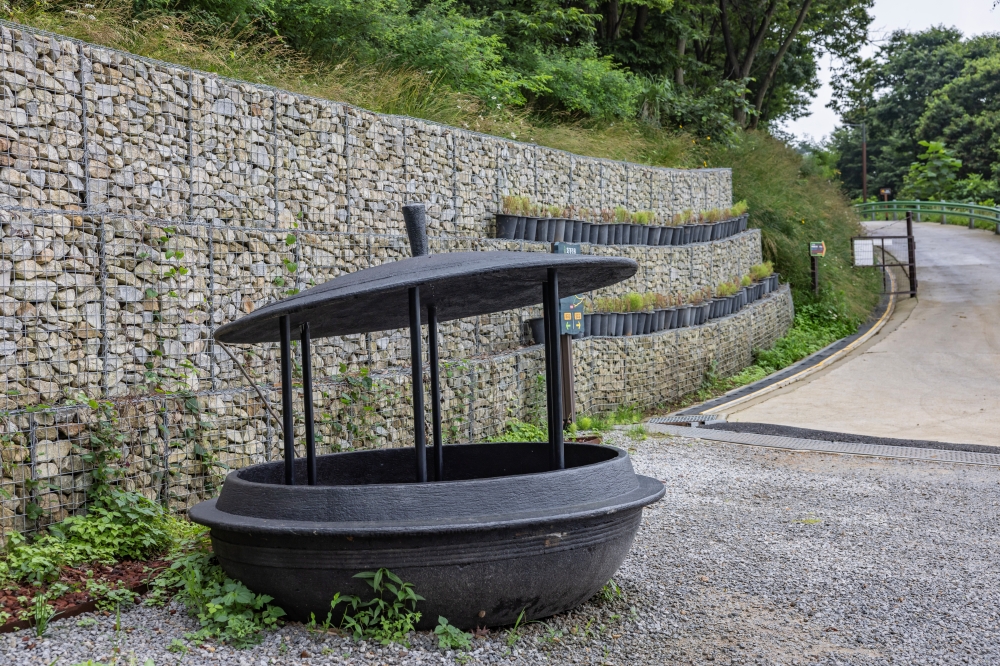
A “Pot Lid Stamp Tour,” in which visitors search for hidden pot lid sculptures throughout the garden, is available year-round.
If you complete the QR check-in at six out of eight locations each, you’ll receive Nadeulmi, Ganghwa’s signature rice, at the ticket booth.
[tip]
- Seats on the right side offer the best views uphill by monorail, and vice versa on the left side when coming back down.
- The Skywalk Observatory may be closed depending on weather conditions.
- Address6-62 Gyodongdong-ro 471beon-gil, Gyodong-myeon, Ganghwa-gun, Incheon
- Inquiries+82-32-932-2336
- FeesEntry fee: KRW 5,000 / Round-trip monorail ticket: KRW 13,000 (adult)
- Opening HoursMon.–Fri. 8:00 AM–7:00 PM / Sat.–Sun. 8:00 AM–10:00 PM (Last entry: 1 hour before closing)
- Website/www.ganghwa.go.kr/hwagae/
SPOT 4 The Closest Viewpoint of North Korea, Gyodong Manghyangdae
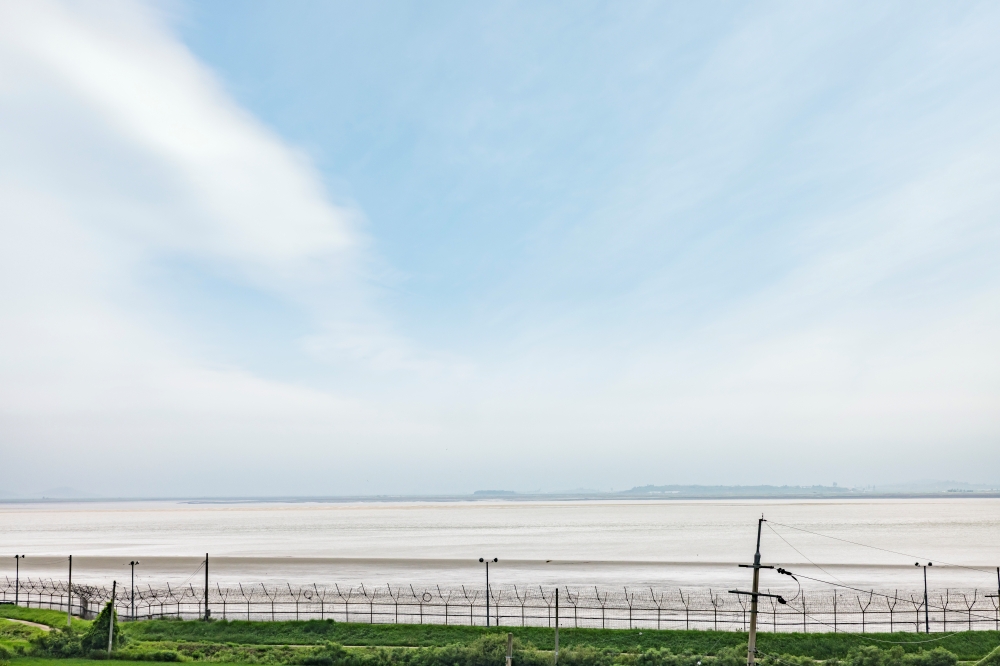
Gyodong Manghyangdae is located on the slopes of Bammeorisan Mountain, the point on Gyodongdo Island closest to North Korea. It lies just 3 km away, allowing visitors to visually observe the landscape of Hwanghaedo. With a telescope, you can even glimpse buildings and residents across the border.
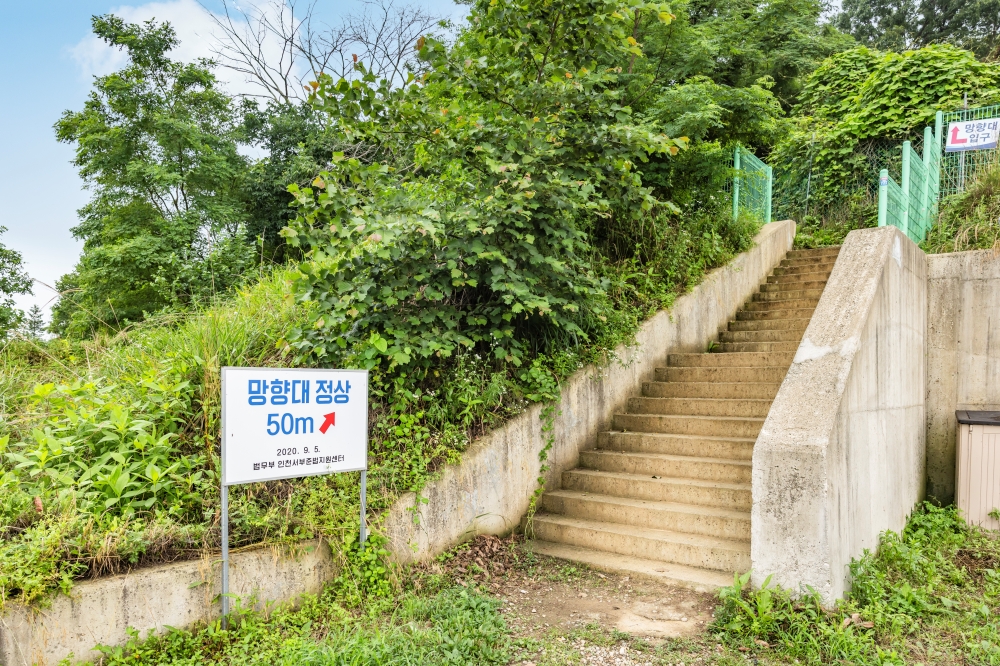
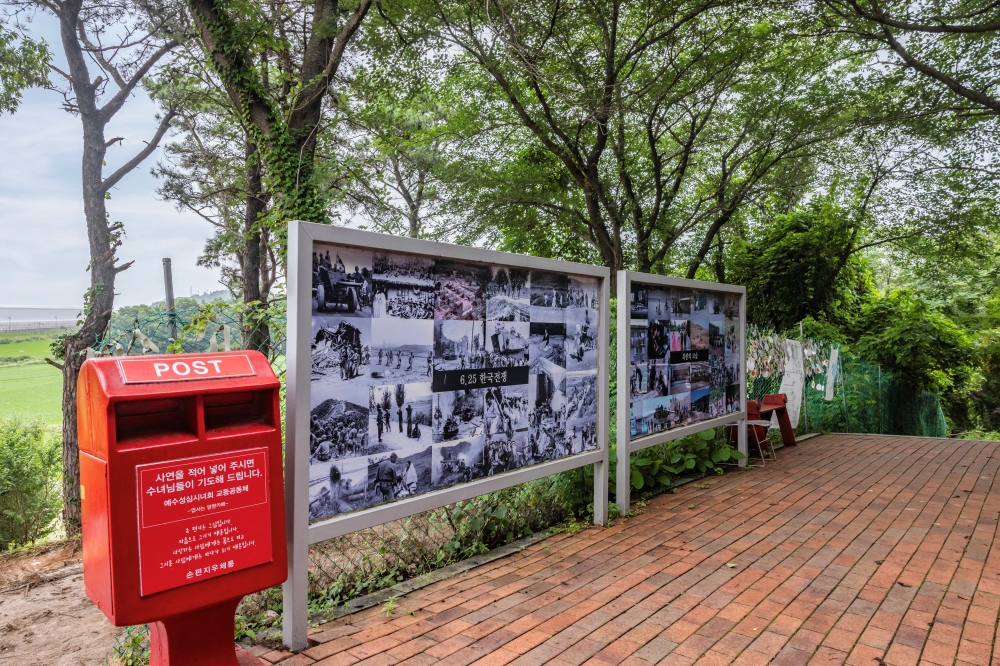
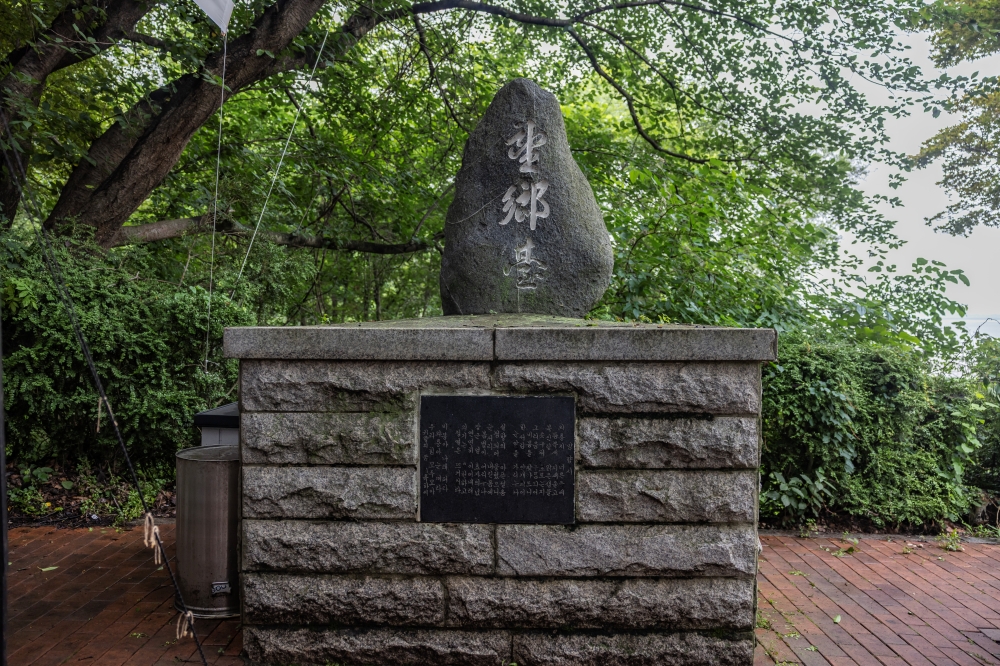
This place was established to console those displaced and prevented from returning to their hometowns by the Korean War. That is why, on one side of the observatory, you’ll find a monument inscribed with a poem expressing their pain and nostalgia, along with photographs depicting scenes of the war and life in North Korea. As you take in the exhibits, the painful reality of being so close to one’s homeland yet unable to reach it becomes all the more poignant.
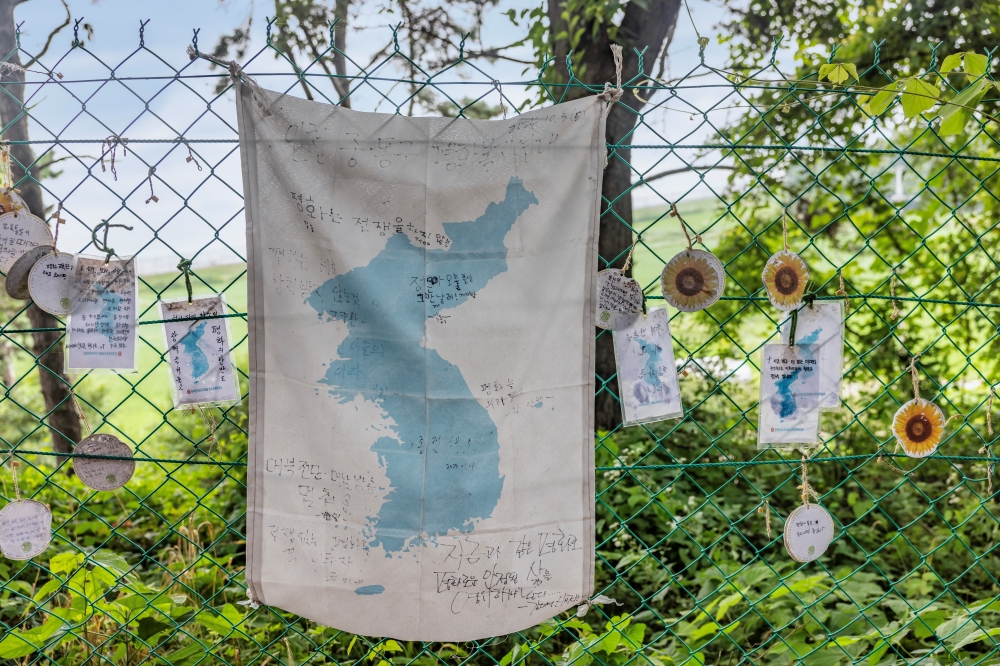
“Longing for my hometown. I pray for the day we can come and go freely.” These brief yet heartfelt words leave an indelible impression.
- AddressSan 70, Jiseok-ri, Gyodong-myeon, Ganghwa-gun, Incheon
- Opening HoursOpen 365 days a year









